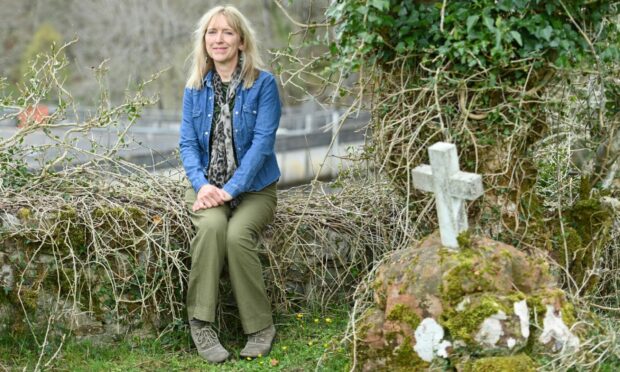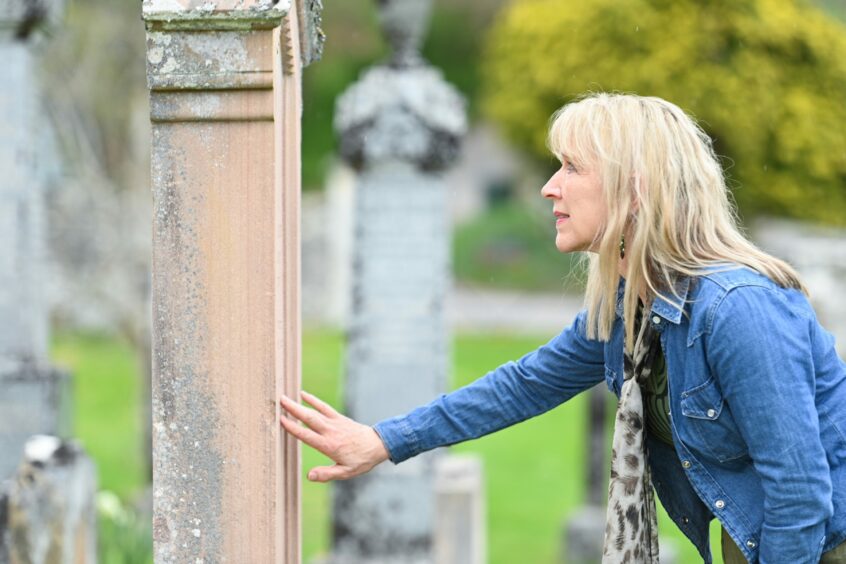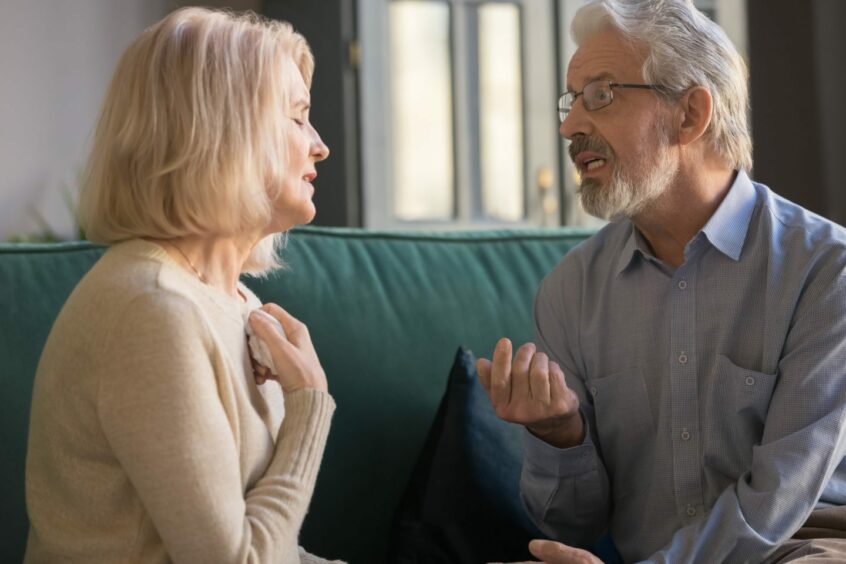Muirne Buchanan has developed a specialist set of skills, helping families uncover the crucial last wishes of loved ones after they die.
Through her work winding up people’s estates, she’s helped inventory priceless antiques at a castle and tracked down complicated paper trails.
But more recently, she’s found her clients have been living more of their lives online – with the need to access email accounts and passwords making her role even more challenging.
And Muirne says it’s crucial we talk about these situations with our loved ones, even if it may feel like a difficult topic to broach.
‘Life gets more and more complicated’
“We’re now in a situation where so many people conduct their business online,” Muirne, of Dingwall, says.
“We’re all told to hide our passwords, but if you do all your banking online and you drop dead, how does anybody access that?
“Or there’s all the things that people don’t really think about, such as what happens to your Facebook profile or all the online accounts there isn’t actually a paper trail for?
“Or what happens to the pet dog? Life gets more and more complicated.
“There are so many things that people don’t necessarily think about.
“They think about the funeral and their will but they don’t actually think of all the other aspects of their lives and what happens to them.”
‘You build up a picture of people while packing up their belongings’
Muirne launched the Executor’s Helper business in 2020 after dealing with the death of her own aunt in Inverness.
Since then she’s helped a raft of bereaved families and was recently taken on to work on the inventories of antiques at a castle following the owner’s death.
“It’s amazing how much you can learn about a person’s personality by sorting out their documents and packing up things that meant something to them,” she said.
“You do build up pictures of a person even though you know you’ll never meet them.”
It’s important for Muirne to follow the wishes of the bereaved families who are left behind.
It can bring them comfort knowing that she has gone the extra mile to find people in need of their loved ones’ possessions.
Tools from a garage, for instance, could be donated to a local Men’s Shed organisation.
Breaking the death taboo: ‘It’s important to speak about this while you’re still alive’
For Muirne, and the recently bereaved, it makes it easier for them to know of their loved one’s last wishes.
“I think it’s really important that we talk about death,” she says.
“And it’s not just with people who are elderly, because tragically, people die young as well.
“We have to approach it and stop it being the taboo that it has become.
“It’s important telling people while you’re still alive. If you really like a tea set and you want someone to have it then tell them.
“It’s all these little things we need to talk about so that people don’t have to make those decisions – or argue about it – when someone passes.”
What’s the best way to talk about death with my loved ones?
But how can we make it easier to bring up the subject of death?
Muirne says it can sometimes be best to approach the heavy topic in a light-hearted way – but only if that seems appropriate.
“Sometimes just bringing it up with a bit of humour works,” she says.
“I could say to a friend: ‘If I get run over by a bus tomorrow, will you look after the dog?’
“And then: ‘By the way, here’s a list of what I want done with my Facebook account and this is where you will find my bank account details’.
“Or starting a conversation after seeing a programme with a plot about death on the TV can help as an opener.
“Humour is not always appropriate but I don’t think there is an easy way round it.
“It’s important not to leave it until the last moment – although none of us really now when our last moment is going to be.”





Conversation